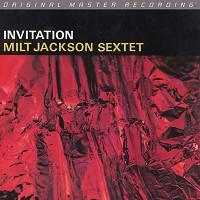Good Vibes on 1962 Milt Jackson Solo Project
Modern Jazz Quartet fans will find this Milt Jackson solo outing surprising and in a sense liberating. While the vibraharpist remains his usual cool, resilient self, the addition of Kenny Dorham on trumpet and Jimmy Heath (brother of MJQ bassist Percy) on tenor sax gives the outing a bit more swagger and drive compared to the MJQ’s usual studiousness.
Yet with MJQ drummer Connie Kay on board, when the horns are out of the picture the flavor shifts toward the MJQ’s famously tuxedoed tenor, though pianist Tommy Flanagan is more dynamic and less academic than John Lewis. The always musically reliable bassist Ron Carter anchors the bottom end.
With the lead instrument being the bell-toned vibraphone and everyone else in support, Jackson has a chance to stretch. His sound has never been more seductive, aided by a superb recording and mix that places him center stage on this set that mixes standards with two Jackson originals along with a Monk classic and a Dorham contribution.
While Jackson stars, he leaves plenty of room for his cohorts to shine. The tidy arrangements and expert delivery do not require elucidation here as everything unfolds in a pleasingly straightforward mannerno expert commentary required.
The recording, particularly of the usually difficult to capture vibraphone, is stellar. Jackson’s vibes float three dimensionally center stage while the horns occupy spaces hard left and right. The bass is off to the right, drums left, leaving plenty of space for the vibes.
Riverside originals were never revered for their quiet grooves or meticulous sound generally, even when it sounded as if sonic greatness may have been lurking somewhere on the tape.
This reissue removed layers of dirt and grime from the original’s sound leaving cleanliness, transparency and beauty. Connie Kay’s drums, particularly his shimmering cymbal and snappy snare work, have rarely been captured as cleanly as they are here. Ditto Jackson’s vibes. Flanagan’s piano suffers a bit in comparison but great jazz piano recordings from that time were few and far between.
Even back in 1962 when this set was recorded, there was nothing earth shattering or monumental about the music on this record. It’s basically straight ahead, “in the pocket” jazz of that era, played by top practitioners capable of pulling off the intricately drawn arrangements.
The music alone is sufficiently compelling to draw a top recommendation. Add a great recording and superior disc mastering and you have a set worth owning. Also available on a fine sounding SACD.
- Log in or register to post comments




